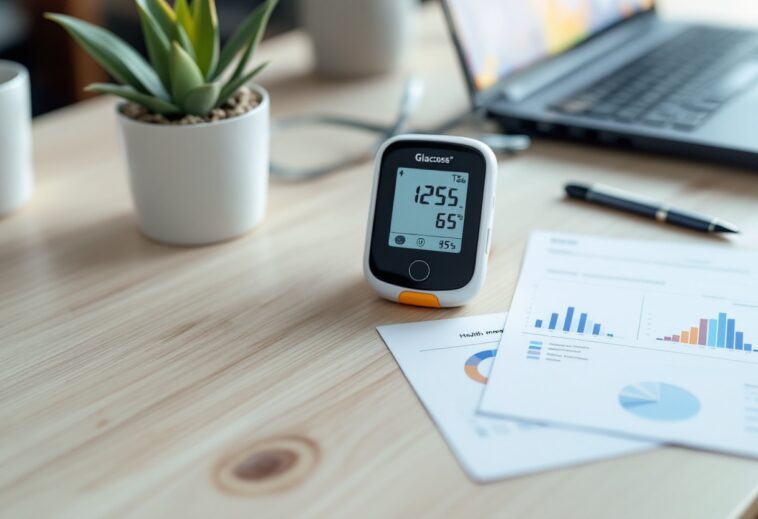Table of Contents
Understanding continuous glucose monitoring
Continuous glucose monitoring (CGM) is a groundbreaking technology that has transformed the way individuals manage their blood sugar levels. These wearable devices, typically applied as a patch on the arm, track glucose levels in real-time, providing users with immediate feedback on their blood sugar status.
This innovation is particularly beneficial for people with diabetes, allowing them to avoid the discomfort of frequent finger pricks. However, recent studies suggest that CGMs may offer more than just convenience; they could play a significant role in enhancing brain health.
The link between blood sugar and cognitive health
Research has increasingly highlighted the connection between blood sugar levels and cognitive function. High blood sugar, or hyperglycemia, has been linked to various neurological issues, including an increased risk of dementia. Dr.
Michael S. Okun, a prominent figure in neurological research, emphasizes that maintaining stable glucose levels is crucial for cognitive health. A recent study published in the Journal of Diabetes Science and Technology indicates that using CGMs can help individuals maintain healthier blood sugar levels, potentially reducing the risk of cognitive decline.
Benefits of CGMs beyond diabetes management
While CGMs are primarily designed for diabetes management, their benefits may extend to individuals without diabetes. The technology allows for continuous monitoring, which can help detect fluctuations in blood sugar that might affect brain function.
Dr. Okun suggests that as research progresses, we may see CGMs integrated into broader health management strategies aimed at enhancing cognitive health. This could be particularly relevant for individuals at risk of dementia, as early detection of high blood sugar levels may help mitigate cognitive decline.
Challenges and considerations
Despite the promising potential of CGMs, there are challenges to consider. The cost of these devices can be a barrier for many, and the need for continuous monitoring may not be practical for everyone. Additionally, the psychological impact of constant glucose tracking could lead to anxiety for some users. Experts recommend consulting with healthcare providers to weigh the benefits and risks before adopting CGM technology. As the field of glucose monitoring evolves, it is essential to stay informed about the latest research and advancements.




